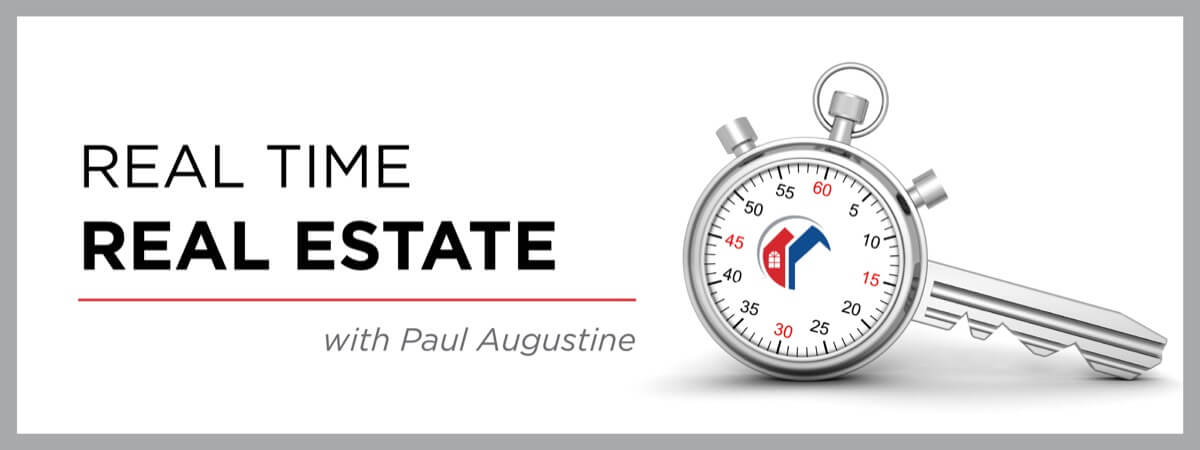
Buying a Home in 2020? Here Are Three Things You Need to Do.
One of the things I love about the real estate business is that no single year is quite like another. But 2020… Real Estate Gods, can you take this year back and give me something that looks at least a little bit like one I’ve already been through?
I’m being lighthearted, of course. The truth is, the markets we’re given are the markets that we work through and adapt to. Every market has its challenges, and having solutions for those hurdles is exactly the reason buyers and sellers need agents in the first place. Since 2020 is going to be unlike any year we’ve ever seen, our team has spent the past few weeks preparing for what lies ahead.
In this two-part mini-series of the Real Time Real Estate weekly (a mini-series within a mini-series?), I’m going to walk you through three things you need to do if you’re planning to successfully navigate this market and buy a home in 2020.
Be Prepared
Sitting on the sidelines right now is not a great idea. It’s true that only about 25% of the amount of inventory launched to market in April this year compared to 2019. Knowing this, your instinct may be to continue casually browsing online for now, waiting for signs of life in the market to get yourself in position to make an offer when the right home appears. The problem with this approach is that there’s a good chance you could miss an influx of homes that will likely hit the market within the next few weeks.
So far in 2020, we’ve not seen the usual surge of spring inventory. There have been some new launches to market — which you’ve seen if you’re searching online regularly — but it is a fraction of what we would see right now in a “normal” year.
Understandably, many home sellers are holding off on launching to market until stay-at-home orders are lifted and buyers can begin to physically tour homes again. In the meantime, they’re getting their homes organized, doing some spring cleanup outside, and preparing for a move that is delayed a bit, but still very much in their plans for this spring or summer.
We have about six weeks worth of backlog as of May 4. I’d predict that many of those home sellers will get their homes on the market as quickly as possible when Harrisburg allows the real estate industry to resume some of their usual functions with safety measures in place. As soon as this news hits, I believe we’re going to see a wave of new inventory resulting in a month of significantly more new launches to market than last year. If the market is able to reopen to some degree by the middle of May, for example, I believe that both May and June 2020 could see up to 50% more new listings come to market than we did during the same time frame in 2019.
Action Item: Get your finances in order now
As a home buyer, you do not want to let this season pass you by. There may ultimately be much more to choose from — but you need to be prepared. Know what you’re doing for mortgage financing if you need it. Strongly consider working with a local and reputable lender. Listing agents are going to closely review offers, and the lender you are using could be a big deciding factor in which buyer’s offer they recommend to their sellers.
Large “box banks” and online lenders are not great choices right now for a host of reasons. Many are still inundated with refinance business from the mid-to-late March refinance boom, and their pipelines are full. Or, their bandwidth is limited and the new business they take on is not going to get the same level of attention. Another reason to stay away is their offering of options is beginning to narrow. Even when they offer the full array of programs, some of the guidelines or “overlays” may be more restrictive.
Online lenders often broker to the larger “box banks” who also manage large portfolios of loan servicing. Since many of those servicing companies are concerned that a large amount of their current portfolios could go into forbearance or deferment in the months ahead, they are less enthusiastic about taking on new loans. The way they express this to the marketplace is by restricting their lending guidelines — requiring you to put more money down, or increasing minimum qualifying credit scores, or making their guidelines stricter.
Action Item: Connect with an agent that will help you navigate this complex market
The second thing you should do to prepare yourself is connect with a knowledgeable real estate agent and work with them to develop a game plan. Find someone seasoned who is willing and able to adapt quickly, and who is utilizing technologies that make the process virtual wherever possible.
Be on the lookout for red flags as you’re interviewing and selecting your agent. For example: if they allude to the notion that the market is going to “reopen” and quickly bounce back to the way it was, they are completely out of touch with reality. Or perhaps they just got into the business, and do not have a seasoned mentor that you’re going to be able to collaborate with through this process.
Our “normal” market earlier this year was challenging and competitive enough as a home buyer, but our current environment is going to take it to an entirely new level. Find someone who has more than a handful of prior transactions under their belt or who is involved in more than 10 or 20 transactions per year. As a real estate agent, the only way to truly keep your hand on the pulse of any market, let alone one that is adjusting as rapidly as this one is, is to be involved in a high frequency of transactions.
Find someone who is truly an expert in the market areas where you are searching. That’s always an important criteria, but with the complexity that will come with seeing homes in the months ahead, having an agent with a good reputation amongst their peers is going to be paramount.
Just as I mentioned in regards to navigating the complexity of mortgage lenders, there are going to be many new challenges in transactions. Since the real estate industry is such a cooperative environment (meaning there is an agent that will represent you, and another that will represent the seller), seasoned listing/seller’s agents will want to work with seasoned buyer’s agents if they have the choice. Who you choose to represent you has always mattered, but it’s going to matter more right now.
Be Patient
Gone (at least for a season) are the traditional ways of viewing homes. There are going to be more procedural guidelines for the steps involved. As of today, what seems will be the process is a sequence that begins with viewing the home online (involving the usual photos, and likely a virtual tour). Then you may attend a virtual showing, and if afterwards the home is still of interest, you’d schedule an in-person viewing as you typically would.
As we’re beginning to see, virtual showings provide a more in-depth viewing of a home, hosted either by the listing agent or the seller. They tour you and your agent, or a group of prospective buyers and their agents, through the home. This takes the place of the traditional open house, keeping foot traffic limited and eliminating crowds. The idea is, if there are 20 groups of buyers that have interest based on what they see online and then attend a virtual showing, maybe six or seven of them will still be interested enough to go and see it in person. This limits the risk of exposure to COVID-19 for all parties involved.
When you do go to view homes in person, be prepared to practice safe social distancing and have safety gear with you (mask, gloves and/or hand sanitizer, and shoe covers). Your agent should do the same. Available viewing times could be far more limited, so you’re going to need to be flexible in this regard as well.
Will there be listing agents who throw public health and safety procedures to the wind and allow for unlimited and overlapping showings? Could you miss out on homes because you are trying to play this safe, keeping you and your family healthy and avoiding large crowds? Could a seller decide that they don’t want physical viewings of their home and only allow for virtual showings? Sure. Decide what your guidelines will be — what you’re going to be comfortable with — and stick to it. One of the factors that could cause a home or two to slip through the cracks are the things I’m mentioning here. And that’s okay. Just be patient through the process, and know that it’s all worth it in the end.
Be Realistic
I can make this tip short and sweet: the market is NOT going to shift and you are NOT going to get a home for a deep discount. Think about it from your own perspective. How many other people in the marketplace are in the same situation as you?
Before the COVID-19 crisis, you had plans to buy a home. You were doing this because your current living situation wasn’t what you wanted. Either you’re still living with family, or renting, or the house you own right now no longer suits your needs. Whatever the case, now you’ve been in that space for much longer than you would have been before this all started. Has that motivation to buy a home diminished, or intensified?
Now couple that with the fact that, for about the past six weeks and counting, we are seeing about 25% of the new supply of homes as we normally would this time of year. Although I believe there is an impending surge of inventory, that inventory is going to be absorbed quickly.
Be prepared, be patient, be realistic. This is the formula for success if you want to buy a home in 2020.

“Real Time Real Estate” is a limited blog series by Paul Augustine, Associate Broker at RE/MAX Centre Realtors, written to help you navigate the good and bad in the era of COVID-19.
